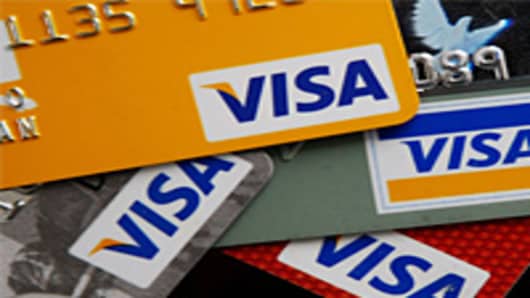The settlement still has to go through a number of approvals, including the U.S. District Court, which could take as long as a year, according to Erica Harvill, spokesperson for Visa.
Here are three ways the settlement could affect your small business:
You will get a discount on transaction fees. As part of the settlement, Visa and MasterCard have agreed to issue a 0.1% discount on transaction fees for 8 months. So, if you accept Visa or MasterCard, you will save some money on your processing costs. The deduction will start at a time to be decided in the final settlement, according to Jim Issokson, spokesperson for MasterCard.
The cash savings isn't viewed as much of a bone to the retail industry, though. "The money is significant but money is only temporary -- it's here today and spent tomorrow," says Mallory Duncan, general counsel to the National Retail Federation, in a statement. Many merchants wanted a more permanent solution to this complex issue -- one that implements "changes in the rules that bring about transparency and competition," says Duncan.
If you're concerned third-party credit card processing companies are going to pocket the savings without passing it along to the merchants, Issokson says not to worry. The credit card giants will keep the savings in an escrow account to distribute directly to the merchants, he explains.
You will be able to charge more when customers pay with a credit card. Before this lawsuit, Visa and MasterCard did not allow U.S. businesses to tack on fees. Under the settlement, merchants will be able to do it, they just have to keep the surcharges reasonable and tell customers what they are charging. The new rules are expected to take effect in early 2013, according to the statement from Visa.
Still, the "merchant doesn't necessarily want to be the first one on the block to start surcharging, because they can irritate loyal customers," says Phil Hinke, the founder of MerchantFeeSavers, dedicated to helping business owners understand the industry. In other words, just because you can hit your customers with a fee doesn't mean it is a good idea.
"The clear losers in this latest round of the battles over merchant interchange fees are consumers," according to a statement from the Independent Community Bankers of America.
If you live in a state where surcharges are illegal, none of this applies to you. Surcharging is prohibited in the following 10 states, according to a research report from investment firm Sterne Agee: California, Colorado, Connecticut, Florida, Kansas, Maine, Massachusetts, New York, Oklahoma, and Texas. It is possible that states will change their laws, but none of that is known right now.
Despite the settlement, the card giants and the companies that process the transactions for them can still hit you with new fees, warns Hinke. Therefore, some merchants are rejecting the settlement, saying it is it a temporary Band-Aid for an industry that needs a major overhaul. "This proposed settlement allows the card companies to continue to dictate the prices banks charge and the rules that constrain the market," says Tom Robinson, the Chairman of the National Association of Convenience Stores, speaking on behalf of the 3700 members, in a statement.


